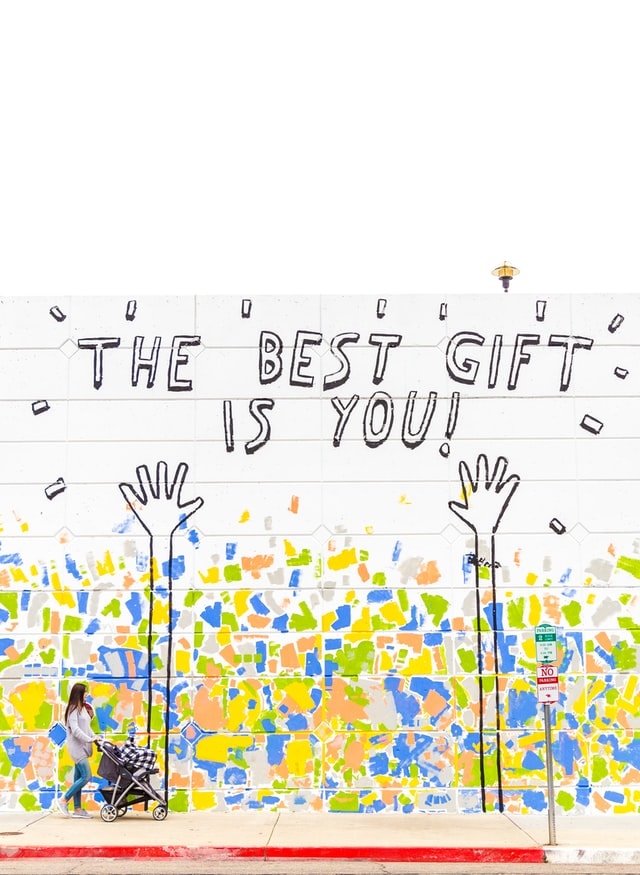
Every business over the last two months is dealing with unexpected challenges. But it is fair to say that some have been less impacted than others. After being reminded by the wisdom of Mr. Rogers, the Simple Thread leadership has asked one question of ourselves a lot over the last month: how can we help our community?
We’ve been encouraged that in talking with many folks over the last month we’re not the only ones asking this question. This week the Simple Thread team hosted our weekly roundtable discussion on how businesses can get involved in giving back.
Where can we begin? How do we discern the “best” causes? How do we match our skills and resources to the needs?
Thankfully we had some great resources to pull from, who would happily share their insights with you as well. Don’t hesitate to reach out … they’re amazing!
- Megyn Robertson: Corporate Program Coordinator, Community Foundation Richmond
- Mollie Brooks: Community Relations Manager at Genworth
- Toby Vernon: Executive Director of Richmond Community Toolbank
You can watch the video of the hour-long discussion, or we’ve summarized some of the highlights and resources that came up as part of our conversation throughout the rest of this article.
Learnings From Our Discussion
Starting From Zero Got Nothing to Lose — Every little bit helps. While it is cliché to say, it doesn’t make it less true. Whether financial or in-kind, there’s places to give. So many organizations need so much help from so many different directions that (what might seem) small or incremental help is still valuable. There’s also second-order effects of our help encouraging others to leverage their networks.
Major on the Majors — Follow intuition on the places that need help. Community Foundation’s Megyn Robertson shared “the greatest needs that we are seeing is food insecurity … medical needs … and affordable housing.” Supporting healthcare, making contributions to stave off food insecurity, helping aging populations, serving the underserved, supporting non-profits, and investing in the local economy are all places that could use help as they ramp up their assistance.
All Hands of All Sizes — This is an all-hands situation and The Community Foundation of Richmond is doing a great job of offering up ways that anyone can help. They’ve got things that can be done by teams or families, together or remotely. From large coordinations to smaller DIY projects there’s so many ways available to pitch in. Through their site, volunteers can perform a wide variety of “gig” volunteer work. Think doing RPS food deliveries sound interesting? Sign up! Want to make some care packages for folks in our cities shelters? That’s there too!
More Than Money — More than money, non-profits are also desperate for the experience that business leaders have, whether they realize it or not. “I’ve never met a non-profit that has all the systems in place that they need,” said Toby Vernon. “Non-profits need like organizational skills, financial management skills, tech knowledge, and networks” are extremely valuable to folks who run non-profits.
Aligning Giving With Business — While we’re in a moment of crisis this is still an opportunity to be thoughtful about where to invest in the community. Mollie Brooks from Genworth was very helpful in talking about how Genworth has thought about their own lines of business and how to line that up with their giving. “We align our foundation giving with our business. We have long-term care insurance so that’s why we fund [non-profit work around aging populations]. We have mortgage insurance so that’s why we align around affordable housing.” How can your business think about the markets you serve and find some ways to give back to the communities in those markets?
The Extra Mile — Toby Vernon reminded us that “you’ve got to follow the ripples of social and economic impact … out to the communities you don’t visit every day … It’s easy to look at [the restaurants in certain sections of the city] … but there are great restaurants in the East End, Northside, and Southside as well. They’re important businesses too.”
Links & Resources
NO EXCUSES NOW NOT TO START LINK 👇😉
HandsOn Greater Richmond COVID-19 Response
HEALTHCARE AND FRONTLINE WORKERS
- Protective Gear
- Taking Care of Basic Needs
- Frontline Foods Richmond
- Help By Hosting (AirBnB)
- Caring for our Caregivers (AMA)
- Blood Donation
- Free Clinical Services
- Behavioral Health Services
COMMUNITIES IN NEED
- Food Security
- FeedMore
- Food Pantries in Richmond (RichmondMom)
- School Districts COVID19 Food Services
- Sacred Heart Center
- Housing & Homelessness
- General Need
- Supporting families
- Refugees & Immigrants
- ReEstablish Richmond
- International Rescue Committee
- Crossover Clinics
- WEPC Food Pantry (serves mostly refugees & immigrants)
- Work Projects
AGING POPULATIONS
- Virtual Volunteer Opportunities
- Food security
SERVING THE NON-PROFITS
- Community Foundation
- Supporting the infrastructures of non-profits
INVESTING IN THE LOCAL ECONOMY
- Keep Calm and Nom Nom
- Grow RVA (Farmer’s Markets)
- Richmond EDA
- Richmond Restaurants United
- Virginia Council for CEOs
Again, our thanks to Megyn Robertson from The Community Foundation, Mollie Brooks from Genworth, and Toby Vernon from the Richmond Community Toolbank for taking their time to tell us more about the needs and paths to help in our community. Our thanks on all who attended and asked questions as well!
Loved the article? Hated it? Didn’t even read it?
We’d love to hear from you.



